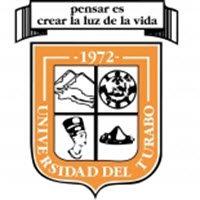Below is a summary of the abstract you submitted. Presenting author(s) is shown in bold.
If any changes need to be made, you can modify the abstract or change the authors.
You can also download a .docx version of this abstract.
If there are any problems, please email Dan at dar78@pitt.edu and he'll take care of them!
This abstract was last modified on May 29, 2024 at 6:24 p.m..

Since 2019, Universidad Ana G. Méndez in Gurabo, Puerto Rico, has been a participant in the SEA-PHAGES program, known locally as PHAME. As a Primarily Undergraduate Institution, we often face limited resources. Additionally, the institution has undergone a unification process that brought about numerous changes, including faculty adjustments. These factors have sometimes made it challenging for students to engage in research, placing them at a disadvantage when applying to other programs such as medicine, veterinary medicine, or graduate studies.
The SEA-PHAGES Program has provided an avenue for involving primarily sophomore and junior students in high-quality research. Through three Phage Discovery sections and four Phage Genomics sections, we have engaged 68 students. To date, 23 phages have been isolated, with five of these phages sequenced and annotated. As part of the Phage Discovery component, students are required to deliver oral presentations to introduce their phages and showcase their findings, as well as prepare preliminary manuscripts. During the Phage Genomics component, students present their work at the Undergraduate Symposium at UAGM through oral presentations and prepare posters for the SEA-PHAGES Annual Symposium. These presentations and posters are collaborative efforts among all participants and are integral to their final grades, highlighting the importance of outreach activities.
Participation in PHAME has also led some students to pursue independent research on related topics. For example, some students have investigated the evolutionary diversity and conservation of minor tail protein genes in Microbacterium foliorum-infecting phages. They identified distinct clades of minor tail proteins and used the software SWISS-MODEL to predict and compare protein structures. Another group of students is applying the methods learned to detect phages infecting enteric bacteria in freshwater bodies in Puerto Rico. Additionally, one student is conducting a literature review to identify the most significant bacterial phytopathogens in Puerto Rico to find phages capable of combating them.

